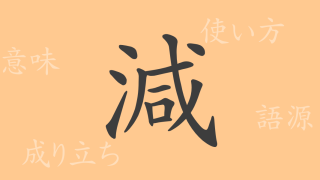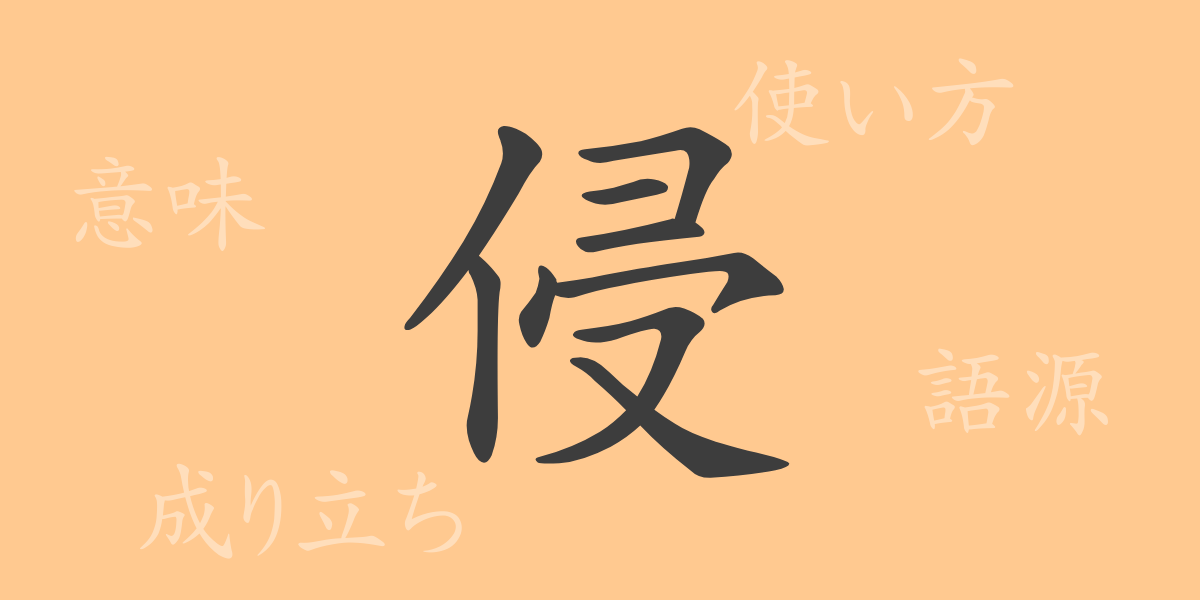The richness of the Japanese language is often expressed through Kanji, each character delicately weaving emotions and actions. One such Kanji is ‘侵’ (しん), whose potent meanings significantly influence Japanese discourse. This article explores the world of ‘侵’, from its origins to its usage in phrases and proverbs, uncovering how it resonates with the Japanese spirit.
Origins of 侵 (しん)
The Kanji ‘侵’ traces back to ancient China, evolving from pictographs. Originally depicting the erosion of land by water, it symbolizes the relentless force of water encroaching on land and the human efforts to counteract this. Over time, its meaning expanded to encompass not just physical erosion but also the broader concept of infringement or encroachment.
Meaning and Usage of 侵
‘侵’ is commonly used in terms such as ‘侵入’ (invasion), ‘侵略’ (aggression), and ‘侵害’ (infringement), embodying the idea of unlawfully entering or occupying something. It is prevalent in specialized fields like law and medicine, signifying crucial concepts for protecting rights, territories, and health.
Readings, Stroke Count, and Radical of 侵
The Kanji ‘侵’ is distinguished by its form and pronunciation.
- Readings: On’yomi is ‘シン’, with no specific Kun’yomi.
- Stroke Count: Total of 11 strokes.
- Radical: The radical is ‘はしる’ (辵・辶).
Phrases, Idioms, and Proverbs Involving 侵
Phrases and idioms containing ‘侵’ carry strong messages within the Japanese language. For example, ‘侵攻’ (invasion) denotes the act of an enemy entering territory, while ‘侵害’ (infringement) refers to unjustly violating someone else’s rights. These expressions reflect the Japanese values of justice and fairness.
Conclusion on 侵
The Kanji ‘侵’ illustrates a vital concept for preserving life, order, and rights within society and culture. The power vested in this single character deeply embeds itself in our cultural and moral values through language, highlighting the depth of Japanese expression. Understanding and appropriately using ‘侵’ remains crucial in honoring and conveying these principles.

























